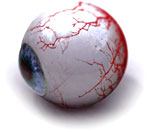I think you are making DUPA up to have people come to your office for a miniaturization study. Here’s way….
I have spent a lot of time looking into balding and watching balding people. Your last post said that you don’t think DUPA has anything to do with DHT. You also mentioned that FPB is not DUPA even though FPB most of the time has miniaturized hair in the donor area and entire scalp.
Also, if you look at probably 80% of all balding people I bet they would have SOME miniaturization in the donor area. I for one have thinner donor area then I did when I was 20,(I’m 42). You also mentioned that FPB & DUPA don’t respond to drugs when we know the cause of miniaturization is the effects of DHT. Science has proven this.
I think that a lot of men can have hair loss in both a MPB & FPB patterned combined. Thus resulting in a slightly thinner donor area. (less than 30% miniaturization throughout the whole head). Maybe some people just miniaturize throughout their whole heads and never progress from there.
I understand the importance about evaluation someone for miniaturization in donor area to avoid a disastrous transplant scar. I applaud you for it. My problem is the fear of god you have imposed on some people about this thing called DUPA and how nothing can diagnoses it accept a miniaturization study, which you and a few colleauges provide. I think it is just a male with a female diffused pattern. This in theory should response to DHT blockers. Unless you can think of another cause for miniaturized hair throughout the entire scalp other than MPB/FBP or as you call it DUPA.
I doubt you will post this but I felt it important to express my personal opinion.

I am posting this just to allow other opinions.
Less than 1% of the men I examine in my office have DUPA. There is always some appearance of miniaturized hair all over the head, but I believe that we are looking at are the vellus hairs in the follicular unit which may account to about 20% of the hair in the “permanent zone”. Medical science is a descriptive science and DUPA is a description of what we are seeing — diffuse unpatterned alopecia (alopecia without a pattern to it that is diffusely found all over the head).
I guess if you were a blind man, you would doubt the existence of something that is clearly visible to a sighted person.



 This is a question you need to ask of your ophthalmologist. A short course of Propecia should not cause any problem and macular degeneration from Propecia is not defined as a known complication of the disease that I could find. I’ve certainly not had any patient mention anything like this to me over the years.
This is a question you need to ask of your ophthalmologist. A short course of Propecia should not cause any problem and macular degeneration from Propecia is not defined as a known complication of the disease that I could find. I’ve certainly not had any patient mention anything like this to me over the years. I would trust your doctor to treat your thyroid issues with the dose of medication that he prescribed, but Synthroid (levothyroxine) does list “mild hair loss” as a possible side effect (see
I would trust your doctor to treat your thyroid issues with the dose of medication that he prescribed, but Synthroid (levothyroxine) does list “mild hair loss” as a possible side effect (see